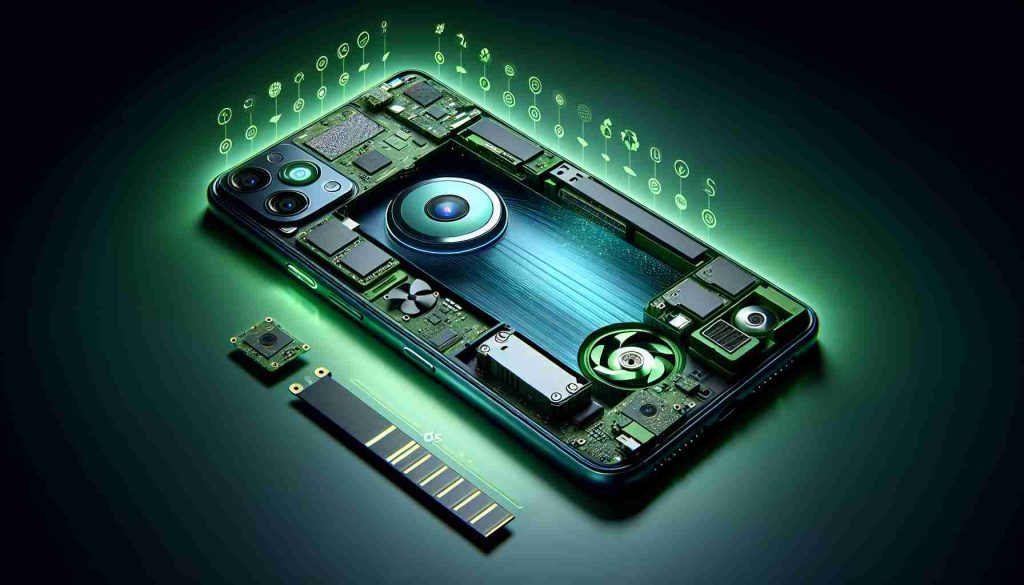Smartphone Performance Beyond Chipsets
In the ever-evolving landscape of smartphone technology, the necessity of RAM has taken center stage. The demand for increased RAM capacity is no longer just a luxury but a crucial element in meeting the requirements of advanced Artificial Intelligence (AI) features. Unlike in the past, where 8GB RAM sufficed for most multitasking needs, the advent of AI has propelled the need for higher RAM configurations.
Shifting RAM Trends in Leading Brands
The competition among flagship Android devices to exceed the 12GB RAM threshold highlights the race towards accommodating intensive AI tasks seamlessly. While top-tier brands have embraced this shift, many mid-range phones have struggled with inadequate memory configurations. Notable examples include delays in the release of certain models due to RAM constraints.
The Role of AI in Future Smartphone Development
As the industry progresses towards AI-driven functionalities, the significance of sufficient RAM becomes paramount. The looming prospect of AI advancements necessitating 16GB or even 24GB RAM in the near future underscores the pivotal role of memory capacity in facilitating complex AI operations. However, caution is advised against deceptive marketing tactics promoting “virtual RAM” expansions.
Diverse Approaches to AI Integration
While tech giants such as Apple, Google, and Samsung lead the AI frontier, the integration of AI capabilities across different smartphone brands remains heterogeneous. Brands like OnePlus and Xiaomi have yet to fully harness the hardware potential for AI applications due to software development complexities. As the industry awaits customized AI solutions from various manufacturers, informed consumer decisions are crucial in aligning with evolving AI trends.
The Future of AI-Optimized Smartphones
Anticipating the next wave of AI-enhanced devices from industry players like Google, Samsung, and Apple underscores the importance of strategic RAM investments for future-proof functionalities. The forthcoming releases of devices like Google Pixel 9, Samsung Galaxy S25, and Apple iPhone 16 are poised to elevate RAM capacities to accommodate cutting-edge mobile AI features. In navigating the smartphone market, prioritizing AI compatibility alongside robust RAM specifications is central to unlocking the full potential of modern devices.
The Unseen Influence of AI Evolution on Smartphone RAM Demands
In delving deeper into the realm of smartphone technology, the impact of AI evolution on RAM requirements extends beyond the surface trends. While the focus has predominantly shifted towards higher RAM capacities for AI integration, lesser-known factors contribute significantly to the escalating demands placed on smartphone memory.
Unveiling the Unanswered Questions
1. How does AI evolution impact the efficiency and speed of RAM utilization in smartphones?
2. What specific AI tasks warrant the need for 16GB or 24GB RAM, and how do they differ from traditional RAM-heavy processes?
3. Are there potential drawbacks to excessively high RAM configurations solely driven by AI advancements?
Addressing the Key Challenges
One of the primary challenges associated with the increasing RAM requirements driven by AI evolution is the balance between performance enhancement and energy efficiency. While AI algorithms demand extensive memory resources for seamless operation, optimizing RAM utilization without compromising battery life remains a complex conundrum for smartphone manufacturers.
Controversies Within the AI-RAM Landscape
A contentious issue lingering within the domain of AI-driven smartphone development is the ethical implications of data storage and processing. The surge in RAM capacities necessitated by advanced AI functionalities raises concerns regarding data privacy, security vulnerabilities, and potential misuse of sensitive information by tech companies.
Advantages and Disadvantages Unveiled
The advantages of AI-driven RAM evolution in smartphones encompass unparalleled processing power for intricate AI tasks, enhanced user experience through intelligent functionalities, and future-proofing devices against upcoming AI innovations. However, the disadvantages revolve around inflated device costs, diminishing battery longevity due to heightened RAM consumption, and potential privacy risks associated with intensive data processing.
Now, in light of the expanding landscape of AI in smartphones, the dialogue surrounding RAM requirements transcends mere numbers and delves into the intricacies of sustainable AI integration within the constraints of modern device architecture. As consumers navigate the evolving market dynamics, understanding the nuanced interplay between AI evolution and RAM demands is pivotal in making informed decisions for the mobile technology landscape.
Explore further insights into the intersection of AI and smartphone technology at techradar.com.























